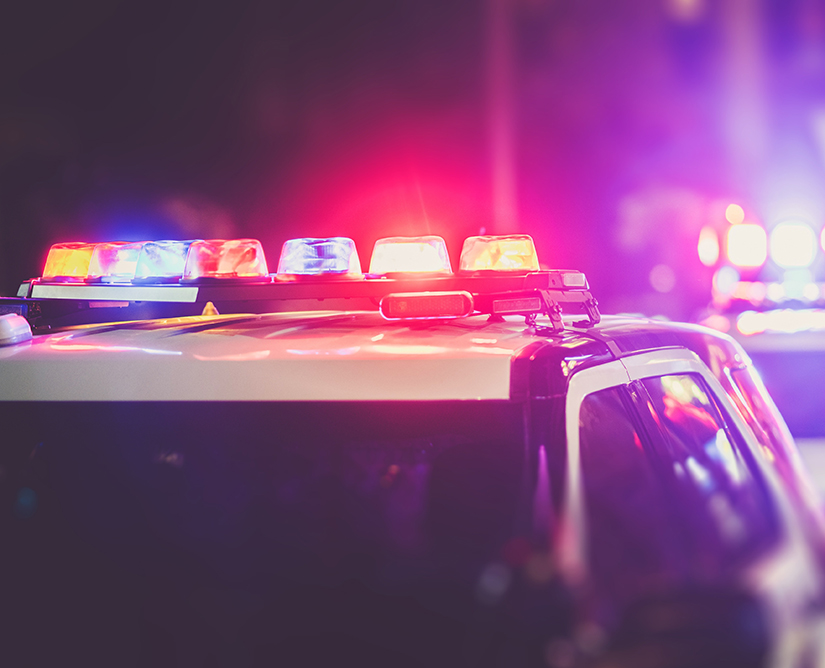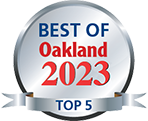Local Law Enforcement of Oakland DUIs
156+
Reviews







DUI cases in Oakland are handled in much the same way as other jurisdictions. The prosecution focuses on the facts of the case, the blood alcohol level, and whether there was an accident, injury or any other aggravating factors. Contact a skilled DUI attorney if you have been charged with this offense, or for more insight on local law enforcement of Oakland DUIs. A lawyer can help with building a defense as well as providing more information on this charged.
Several factors make DUI charges intimidating. The impact on someone’s license includes the potential loss of their driving privileges for as little as 30 days or as long as a year or more depending on their charges. DUI charges come with significant fines and fees. A DUI charge could result in the loss of employment depending on the kind of work the person does. It may affect how someone goes about living their life while they are on probation.
The individual may be required to wear a monitor on their ankle that tracks their consumption of alcohol and possibly their location by GPS locator. They might be required to install a device on any vehicle they drive that prohibits them from driving the vehicle until they blow into the device to prove there is no measurable amount of alcohol in their blood. A DUI charge has significant financial impacts, potential employment impacts, and it also comes with the possibility of doing jail time or a work program.
Arrests for DUIs happen everywhere in Oakland. They tend to happen more at night, but they are not exclusively at night. A DUI stop can occur in the middle of the day and they frequently do. In terms of stops and checkpoints, there is no specific location but there are requirements that those checkpoints be noted in advance.
If someone gets stopped at a DUI checkpoint, a defense attorney may look into whether law enforcement strictly complied with the regulations required for administering a DUI checkpoint. If not, there may be grounds to contest the legitimacy of the checkpoint stop.
In the State of California, the population as a whole realizes the severity and significant impact of drunk driving offenses. Local law enforcement of Oakland DUIs is not lenient when they file these cases. The authorities vigorously prosecute DUI offenses once they are in court. The emphasis that prosecution and police officers is a reflection of society’s recognition of the serious problem DUI offenses pose to everyone in the community.
Since Oakland is in Alameda County, one of the unique requirements is that an Ignition Interlock Device is required pursuant to a DUI conviction. These machines are not mandatory in other counties except for Sacramento, Tulare, and Los Angeles in addition to Alameda. This pilot program began in 2010 and was set to end in 2015 but was extended through 2018.
A local DUI attorney may be more familiar with the prosecution, courts, and nuances of the local system that can result in a better outcome for the defendant. A skilled defense attorney has the legal experience and familiarity with the courts because of their regular interactions with the prosecution and judges that helps them resolve the case on behalf of their and allow them to clearly advise clients on what to expect upon being charged with a crime in Oakland or Alameda County.
Across the board, the policies, practices, and procedures of the police departments and local law enforcement of Oakland DUIs that are involved with drunk driving arrests are the same. Field sobriety tests are administered on the scene to someone when they are stopped and there is a suspicion the person is driving under the influence.
The authorities use a combination of scientific techniques such as breathalyzers, physical tests of agility, observations of the driver by the officer, driver’s statements, and witness statements when an accident occurred to make a determination whether a driver should be arrested or not. The driver is taken down to the station for booking, blood or breath testing, and processing.
Most infield interactions are recorded by dash cam or body-worn cameras these days which allows defense counsel to see an accurate depiction of what occurred so long as the camera was rolling and the audio was turned on. For more information, contact a knowledgeable attorney today.

The Nieves Law Firm is dedicated to providing aggressive criminal defense representation to working professionals who have found themselves in trouble with the law. We show up to win, and we’re not afraid to fight aggressively to accomplish our client’s goals.
We understand that being accused of a crime can be a scary and confusing experience. That’s why we take the stress off our clients by handling the full scope of their legal situation from the initial consultation to the final outcome. Our bilingual attorneys and staff are here to ensure that our clients feel heard and understood every step of the way.
As one of the largest criminal defense teams in Oakland and the Greater Bay Area, we have the resources and experience to handle even the most complex cases. Our experienced team examines various aspects of your case and, perhaps most importantly, we genuinely care about our clients and their future. We take the time to learn about their goals and priorities so that we can achieve an outcome that allows them to move past their mistakes and focus on the future they want. When you work with us, you become part of our team.
Our skilled criminal defense attorneys have experience handling a wide range of criminal cases. With a deep understanding of the legal system and a track record of successful cases, our lawyers are committed to achieving the best possible outcome in your case.
When facing a criminal charge, having dedicated and experienced attorneys on your side is critical. At The Nieves Law Firm, we understand the gravity of your situation, and our criminal defense attorneys provide unwavering support and legal guidance.
From the moment you reach out to us, we prioritize your well-being and legal interests. Our criminal lawyers are with you every step of the way, from arrest to hearings and beyond, to ensure that your rights are protected. Whether you’re facing charges related to DUI, drug offenses, assault, sex crimes or any other allegation, we have the knowledge and courtroom experience to fight vigorously on your behalf.
We believe in the power of collaboration and will actively involve you in the decision-making process, ensuring you are well-informed and empowered to make the best choices for your defense. Our goal is not only to navigate the legal complexities but also to provide you with the peace of mind and reassurance you deserve during this challenging time.
Give us a call or contact us online so we can schedule a meeting to discuss your legal needs.
Schedule a meeting with our intake coordinator so we can determine the best plan to solve your legal problems.
We work to resolve your legal problems so you can focus on what is most important